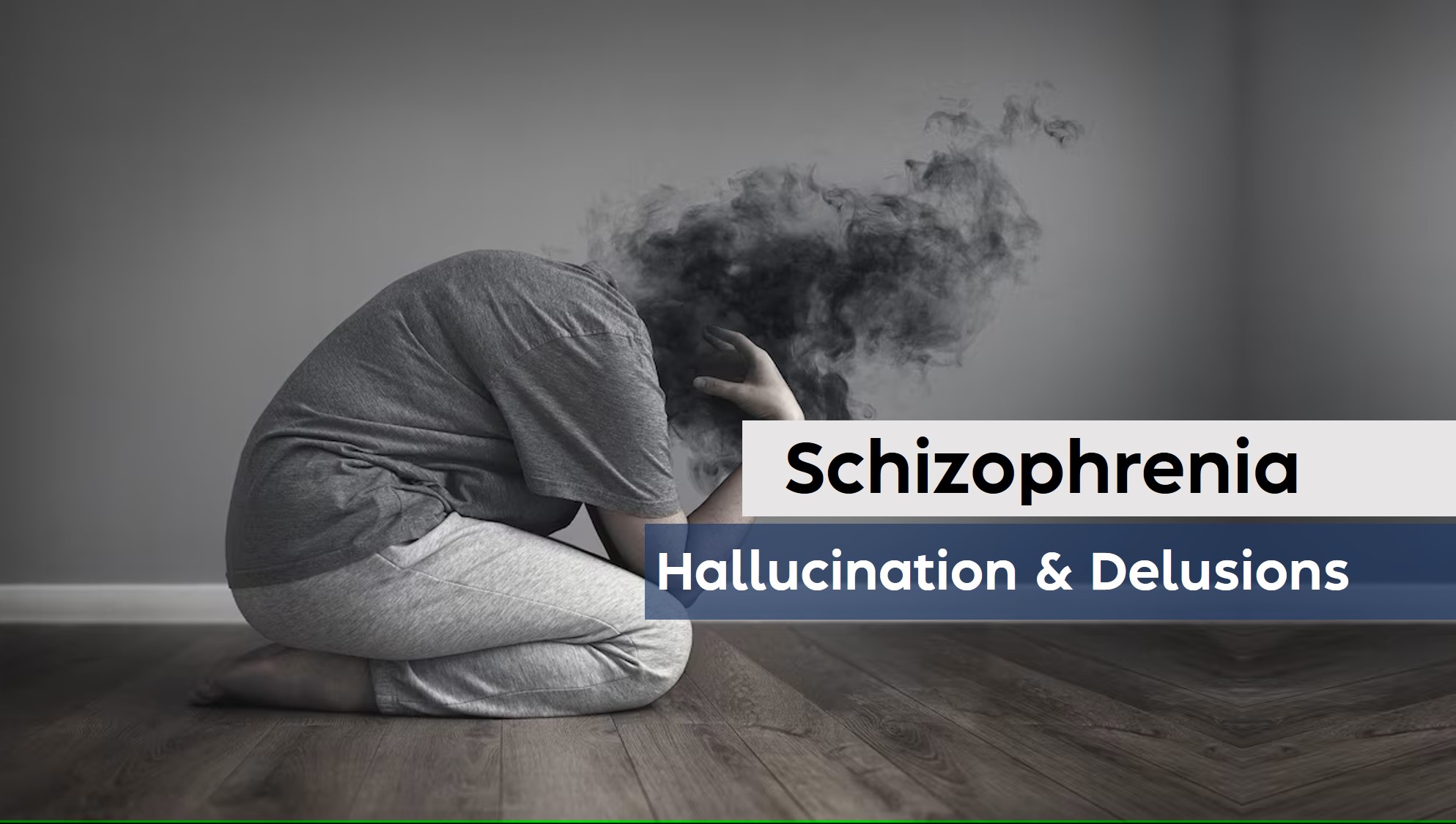This blog is a part of our series to develop a detailed understanding of schizophrenia.
Schizophrenia is known for its typical symptoms. These symptoms have been typically portrayed in a stigmatised manner, which has lead to people associating words like “mad”, “cuckoo’s” etc. with this illness.
One of the most fascinating symptoms of schizophrenia is known as Hallucinations.
Hallucination means experiencing something that is not present. It can happen in each sensory modality (sound, smell, touch, vision, taste). The most common hallucination in schizophrenia is auditory.
Patients report hearing voices which can be directly talking them, or multiple voices talking in-between them. The nature of auditory hallucinations is as follows:
- Auditory hallucinations (voices) can be heard only by the patient.
- They appear as having a conversation with the patient.
- They appear real to the patient and they often find themselves responding to these voices.
During the course of the illness, the nature of these voices changes. They tend to become more aggressive, more personal and start causing significant issues in living a normal life.
The reason that this symptom is fascinating is because schizophrenia as an illness causes:
- Gain of function: New additions that previously did not exist
- Loss of function: Loss of existing abilities due to the illness
Presence of hallucinations represents a gain in function. However hallucinations are not imaginary. Patients actually perceive the sound, they are not imagining these voices.
This is the confusing part for caregivers. They think that the patients are imagining these voices, that they are their own thoughts and not some illness. They believe that they should be able to control these thoughts.
The fact of the matter is, that this phenomenon of hearing voices/sounds represents an illness and its the illness that needs to be treated.
The second prototypal symptom of schizophrenia is the presence of delusions.
Delusions are fixed, false beliefs that are untrue and can not be challenged. Let me explain this with an example.
Delusions are of multiple types. The most common ones are paranoid delusions:
Paranoid Delusions: A fixed, firm believe that other people are trying to hurt me. The patient falsely believes that groups of people, known and unknown are out there to hurt him, kill him, harm in other ways.
This thought when challenged or rejected, doesn’t change the patients perception and he holds on to this firmly.
Delusion of Reference: In this the patient feels that any two people are talking ill about him and that they are against him. Even if he is given adequate proof regarding its untrue nature.
Residual schizophrenia refers to a state wherein there is incomplete resolution of symptoms of schizophrenia. This means that the patient will continue to have mild symptoms of schizophrenia which may or may not have an impact on life.
These symptoms might not be in the foreground of the illness, but can prevent a person from living a normal life or going back to work.
For e.g. at the onset of the illness, when the patient is severely delusional, they strongly believe that someone they know is trying to hurt them.
Source/s: Banner Image by Freepik.com


